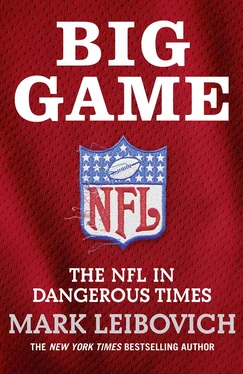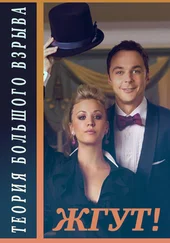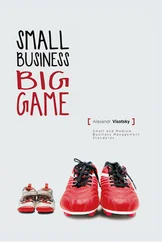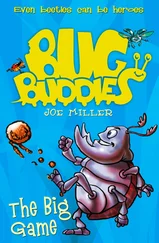And then came the extra point: local fans/taxpayers were also forced to play host to the marauding followers of the team that two weeks earlier had defeated the Vikings in the NFC Championship Game in Philadelphia—and, for good measure, had pelted their kindly midwestern visitors with a Philly Special of profanity, hurled objects, and beer showers as they attempted to flee their beating.
All that said: the “Minnesota Nice” thing is legit. People are unfailingly friendly, even to outsiders who don’t deserve it. “I will always live in Minneapolis,” 4Prince once told Oprah. “It’s so cold it keeps the bad people out.” Prince, however, did not live to see this invasion of Eagles and Pats fans at the Mall of America.
Yet just when you’re ready to pronounce the NFL dead beneath an avalanche of its own greed and bullshit—hell, even declare the Super Bowl to be a trope for the decline of America—you hit the payoff. The game starts, and with it the best part of pro football: football.
THERE IS AN HONESTY ABOUT FOOTBALL THAT MY DAY JOB—politics—could never match. No one tries to dress up or excuse a loss, which was refreshing after being lobotomized by so much political spin. No one tries to argue against numbers on a scoreboard, or convince a coach they deserve to start because they went to Harvard (or Alabama). “Football was an island of directness in a world of circumspection,” Frederick Exley wrote in A Fan’s Notes. “It smacked of something old, something traditional, something unclouded by legerdemain and subterfuge.”
Super Bowl 52 was a glorious jailbreak. Both offenses ran circles around the opposing defenses. There was just one punt, few penalties, lots of big plays, and a few sandlot calls back and forth. The Pats tried a double-reverse pass intended for Brady, who had run wide open down the right sideline—only to drop the damn pass. This felt fateful, if not ominous.
Eagles coaches might have sensed the same because they called a similar play later in the half that Foles caught in the end zone. Philly fans were now beside themselves. They had dominated the stadium all night, outnumbering and outcheering smug Pats rooters by a ratio of about three to two. (We got totally owned, as the bros say.) Foles threw three touchdown passes, each requiring replays to confirm the balls were “possessed,” the passes were “controlled,” and the receiver “survived the ground.” But it was Foles’s touchdown catch that kicked the hysteria in the giant room up to decibels rarely heard from a Super Bowl audience in a neutral city.
At the start of halftime, I saw an older Eagles fan in a throwback Wilbert Montgomery jersey wheezing outside a men’s room. He was resisting an oxygen mask from a paramedic and wanted no part of an ambulance. He had suffered too many years with the Eagles to miss this reward. Air is overrated.
I came to respect Eagles fans, grudgingly—very, very grudgingly—as their desperation added a visceral edge. Could they handle ultimate victory? What would the city look like in the aftermath? Philadelphia police slathered Crisco on city poles to discourage celebratory climbing after the Eagles’ win in the NFC Championship Game. The precaution—which based on news photos appeared not to work—joined an instant pantheon of nationally recognized “Philly things.” Before the game, I spoke to many Philadelphia fans who fully expected calamity to intervene to ruin the ride. This is what being a Red Sox fan used to be like before we won in 2004, back in our lovable loser days (we are now neither).
In December, I was at the Eagles-Rams game in the Los Angeles Coliseum in which the Eagles’ brilliant young quarterback Carson Wentz hurt his knee on a third-quarter scramble. The injury did not appear serious at first, but Wentz was replaced as a precaution by his backup, Foles, who managed to hold a late lead. Philly fans—a vocal majority in that stadium, too—were joyous as they filed out of the Coliseum after a 43–35 victory over the NFC West–leading Rams, only to get the news upon checking their phones that Wentz’s injury was in fact a season-ending ACL tear. Elation to deflation, just like that. People were actually in tears. It was hard not to feel for the poor hooligans.
Nick Foles? Maybe a serviceable backup; but when posited as a viable Super Bowl quarterback, his name became a punch line. Foles had performed well as the Eagles’ starter in 2013 and part of 2014, but had worn out his welcome by season’s end—to the extent anyone ever gets “welcomed” in Philly to begin with. Not a single Eagles fan I spoke to believed that the team had any hope without Wentz and with Foles. But somehow Philadelphia kept on winning with the journeyman backup. They were underdogs at home in the playoffs against Atlanta and Minnesota, but won both games. New England was solidly favored in the Super Bowl, despite the Eagles’ being better at nearly every position—except for the most important one on the field, quarterback, where the Patriots and Brady held what looked to be a historic advantage.
This is why it can be hard to turn away from football. The most unlikely of performers can electrify on the biggest of stages, and when you least expect it. This game was just deranged. Thrills came nonstop—except when it all stopped.
A terrifying episode nearly ruined the whole party. In the second quarter, Patriots receiver Brandin Cooks caught a 23-yard pass over the middle, danced around for extra yardage, and never saw Eagles safety Malcolm Jenkins charging at him and BOOM! The helmet-to-helmet hit—deemed legal—elicited another category of football gasp, the sickened kind. Everything went quiet and Cooks was not moving and holy shit. Things got solemn fast.
Football is the “secret vice” of the civilized, wrote William Phillips in the journal Commentary in 1969. “Much of its popularity is due to the fact that it makes respectable the most primitive feelings about violence, patriotism, manhood.” 5This is true enough, but the notion is predicated on damage staying within bounds. The year had been filled with serious injuries to star players (Aaron Rodgers, J. J. Watt, Wentz, and a host of others). But none of them threatened vital organs or functions, with the catastrophic exception of the Steelers’ young linebacker Ryan Shazier, who suffered a spinal injury in a Monday night game against Cincinnati that jeopardized his playing career and (as of early 2018) his ability to walk normally again. Otherwise, even in the season-ending cases, the injuries remained in bounds. As long as the gladiator is still breathing—maybe favors us with a thumbs-up while being carted off—we know we’ve remained safely on the right side of what our football stomachs can digest. Pass the bean dip.
But Cooks was motionless for two, maybe three minutes. The silence in the stadium was becoming gruesome. Not respectable. To state the unspeakable, and at the risk of sounding glib: the Super Bowl would be a most inopportune stage to have a player die on—the NFL’s worst nightmare. My colleague Joe Drape, who covers horse racing for the New York Times and sat next to me in the press box, mentioned at this moment a tragedy from 2008 in which a filly had died on the track after finishing second in the Kentucky Derby. Since then, the sport’s leadership has lived in fear of a replay, believing horse racing might not survive another televised extravaganza that turned into a thoroughbred snuff event. It was obvious why Joe mentioned this now. Would they keep playing this game if Cooks died? Again, maybe this was needlessly glib and morbid (press boxes bring out the glib and morbid). But the NFL had almost certainly game-planned for this scenario, figured out some contingency in the event of sudden death.
Читать дальше












